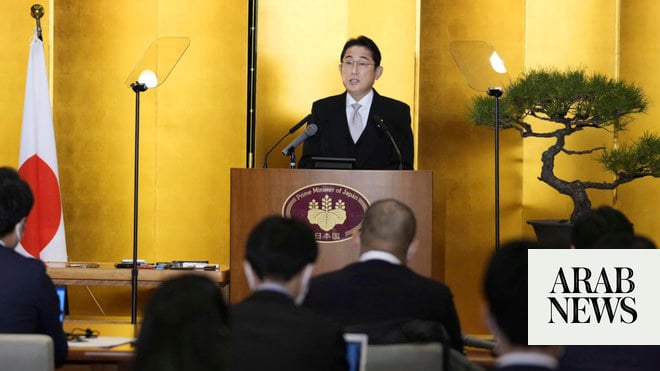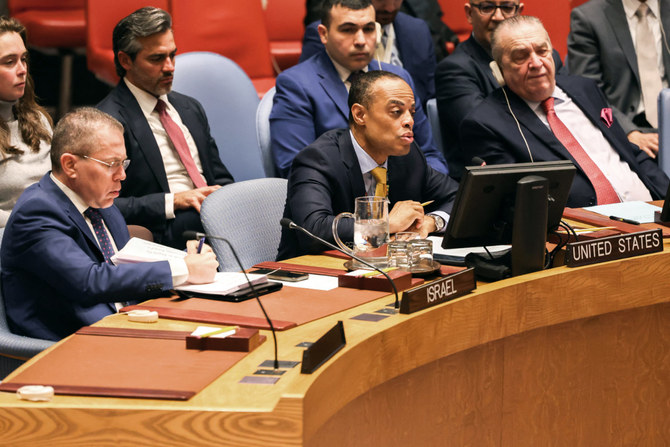
Japanese Prime Minister Shinzo Abe will meet Iranian Supreme Leader Ali Khamenei and President Hassan Rouhani on a visit this week that aims at easing tensions between Washington and Tehran.
Tensions between Iran and the United States have escalated recently, a year after Washington pulled out of a deal between Iran and global powers to curb Tehran’s nuclear program in return for lifting sanctions.
Abe’s trip, scheduled from Wednesday to Friday, is the first by an incumbent Japanese premier to Iran in 41 years.
“Amid rising tensions in the Middle East, we plan to encourage Iran, a regional power, to move toward easing tensions at the top leaders’ meetings,” said Chief Cabinet Secretary Yoshihide Suga, who announced the trip on Tuesday.
Abe had spoken to US President Donald Trump by telephone to discuss Iran, Suga told a news conference.
Japanese government officials say Abe will not present Tehran with a list of demands, or deliver a message from Washington, and instead want to position Japan as a neutral intermediary.
That could prove useful, said Michael Bosack, special adviser for government relations at the Yokosuka Council on Asia-Pacific Studies.
"Japan carries none of the historical or religious baggage of other potential mediators... (and) has demonstrated its willingness to go its own way on Middle East policy," he told AFP.
"These factors better position Abe for engagement with Khamenei and mean that Japanese-proposed options could allow hardliners in Iran to entertain proposed off-ramps, without the potential fallout that could come from accepting Western solutions."
On a four-day visit to Japan last month, Trump welcomed Abe’s help in dealing with Iran after public broadcaster NHK had said Japan’s leader was considering a trip to Tehran.
Abe is in a unique position, thanks to his close ties to Trump, cultivated since the US leader took office, and Tokyo’s friendly relations with Iran, diplomatic experts said.
“Abe is trying to play the role of messenger and ease the tension,” said Toshihiro Nakayama, a Japan Fellow at the Wilson Center in Washington, according to Reuters. “It is a bold move. I think it comes from confidence with his personal relations with Trump.”
Japan is keen for stability in the Middle East because it imports the bulk of its oil from the region, although it stopped buying Iranian oil this year because of US sanctions.
Some experts played down prospects for the trip. “The object of the visit is not to mediate,” said former Japanese diplomat Kunihiko Miyake. “It’s basically bilateral issues and if there is any additional business to do, we will do it carefully.”
The most Abe can probably achieve is to persuade Iran and the United States to resume direct talks, the experts said, adding that both sides may be seeking a face-saving way out of the confrontation.
Iranian commentators said Abe could ferry messages between the two sides.
"Mr. Abes visit comes right after meeting Mr. Trump in Japan, therefore the Americans are interested to use this channel," Ebrahim Rahimpour, a former deputy foreign minister, told Irans Shargh daily ahead of the trip.
Iran will "announce our rights and stances and the other side can announce the messages that could be the US presidents message," he said.
But while Japan has long-standing ties with Tehran and warm relations with Washington, experts say Abe has little leverage with either side and mediation will be an uphill struggle.
The trip by the Japanese PM "faces substantial obstacles and is unlikely to bear fruit," said Tobias Harris, an analyst at Teneo consultancy group, in a note on the visit.
"While Japan has good relationships with countries on both sides, these relationships do not necessarily translate into influence," he added.
Abe "needs a diplomatic stunt as he faces an impasse on Russia and North Korea," said Tetsuro Kato, political science professor at Tokyos Waseda University.
But analysts cautioned that expectations would stay low for now.
"Japan has never played an active role in Middle Eastern problems," Kato told AFP. "I dont expect much in the way of results."
Bosack said it would be "unrealistic" to expect quick outcomes from the visit.












